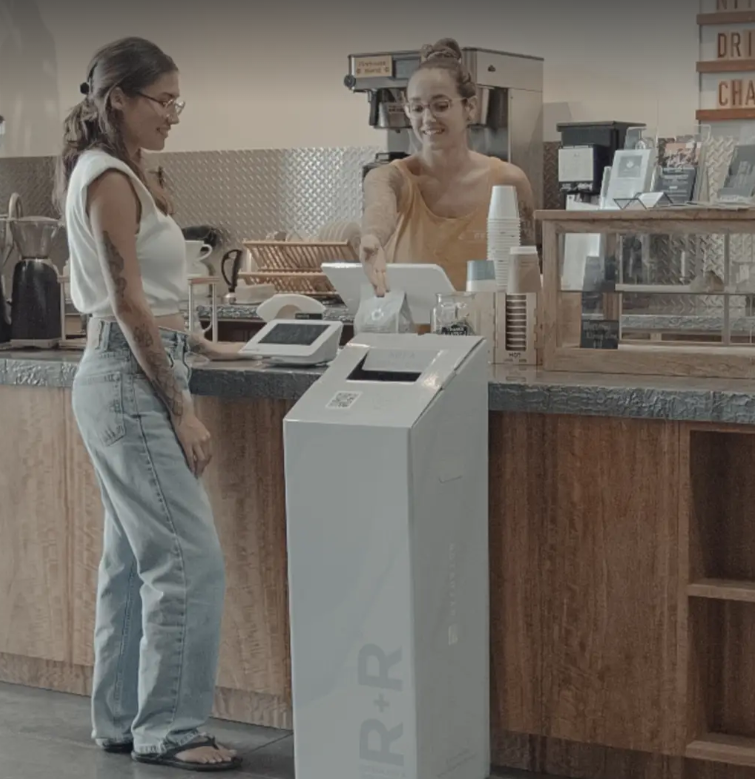1. Choose Compostable Packaging with Savor Brands
Packaging waste is a significant contributor to environmental issues, but Savor Brands offers a solution with their Compost+ sustainable packaging line. This innovative material breaks down efficiently, minimizing harm to the environment while maintaining product integrity.
- Designed for compostability in home or industrial settings
- Perfect for coffee shops or small businesses seeking an eco-conscious edge
- Reduces plastic reliance without compromising quality
Switching to compostable packaging is an impactful way to align your business with customer expectations for greener practices.
2. Embrace the R+R 2025 Program & Recycling Initiatives
Savor Brands’ R+R 2025 Program leads the charge in upcycling and community recycling efforts. This initiative encourages businesses and individuals to give waste new life by repurposing it into useful materials.
- Partner with local recycling programs
- Educate your community about waste reduction strategies
- Transform single-use products into circular solutions
By embracing these programs, you’ll not only minimize landfill contributions but also inspire positive change in your network.
3. Go Digital with the Savor Live App
Reduce physical waste and stay connected with customers through Savor Brands’ Savor Live App. This mobile solution offers monthly subscriptions, streamlining services while cutting back on excess packaging.
- Convenient access to curated coffee selections
- Encourages a low-waste approach through digital interaction
- Reduces reliance on traditional materials like paper or plastic
Going digital doesn’t just simplify operations—it also makes a clear statement about your commitment to sustainability.
4. Create an Eco-Friendly Coffee Shop
Transforming your coffee shop into a greener space starts with packaging. Opt for materials that are recyclable, compostable, or made from post-consumer waste.
- Use biodegradable coffee cups, lids, and stirrers
- Offer discounts for customers who bring reusable containers
- Reduce single-use items by promoting dine-in options
Making these small adjustments creates a meaningful impact, setting your business apart in a competitive market.
5. Introduce Plant-Based Menu Options
Adding plant-based choices to your menu is a simple yet effective way to reduce your environmental footprint. From oat milk lattes to vegan pastries, these items appeal to a growing demographic of eco-conscious consumers.
- Lower carbon emissions compared to animal-based products
- Cater to vegan and vegetarian lifestyles
- Highlight local, sustainable ingredients
Plant-based options align with sustainability goals and open the door to new customer experiences.
6. Solar-Powered Operations (Location Permitting)
Take advantage of renewable energy by integrating solar power into your operations. Solar panels can help businesses cut energy costs while reducing reliance on non-renewable sources.
- Offset electricity use with clean energy
- Access tax incentives for renewable energy adoption
- Showcase your commitment to green innovation
Solar power is an investment that pays off financially and environmentally, making it a win-win solution for long-term growth.
7. Utilize Zero-Waste Coffee Grounds
Coffee grounds don’t have to end up in the trash—they can be repurposed in numerous eco-friendly ways.
- Compost coffee grounds to enrich soil
- Offer grounds to local farmers or gardeners
- Create DIY body scrubs or household cleaners
By adopting zero-waste practices for coffee grounds, you’ll enhance your sustainability strategy while giving back to your community.
Green Goals, Bright Futures: Building a Sustainable 2025 Together
Taking steps toward sustainability isn’t just about reducing waste—it’s about inspiring a shift toward a more responsible future. Whether you're switching to compostable packaging, going digital, or exploring plant-based menu options, every action contributes to a healthier planet. Let 2025 be the year your business becomes a leader in eco-conscious practices.

 Contact Our Team!
Contact Our Team!


